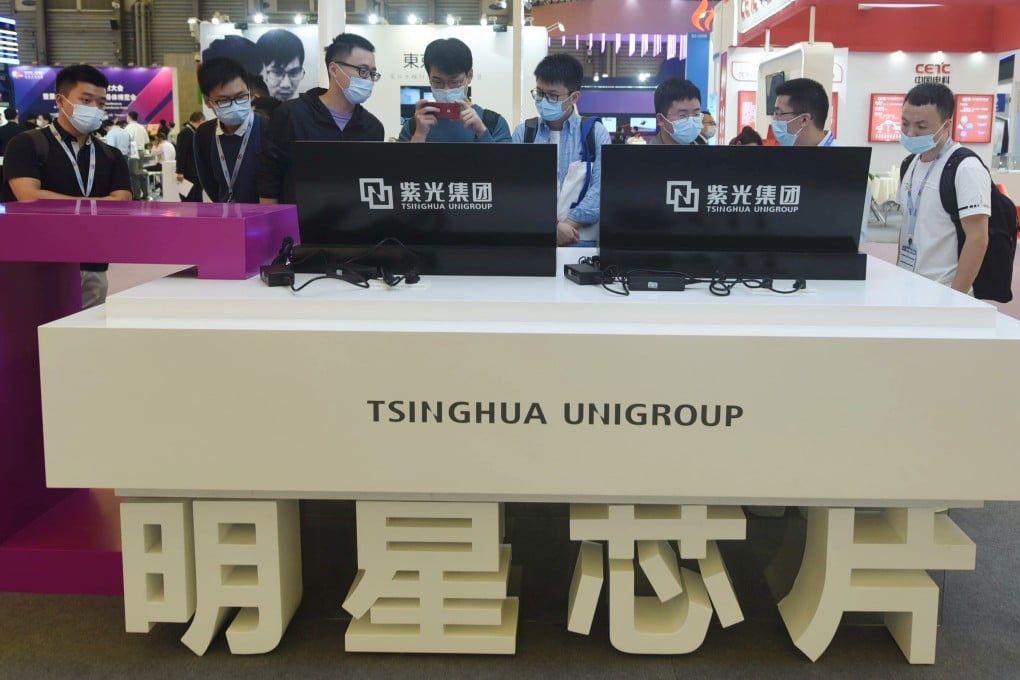Advertisement
Debt-saddled Tsinghua Unigroup to turn from top buyer to big seller of semiconductor assets
- Tsinghua Unigroup moved a step closer to a restructuring after a creditor asked a Beijing court to start bankruptcy proceedings against the company
- It will need to sell assets to pay off about US$30.8 billion in total liabilities
Reading Time:3 minutes
Why you can trust SCMP
4

Tsinghua Unigroup, a technology conglomerate affiliated with China’s top university, is moving closer to bankruptcy restructuring after years of debt-fuelled acquisitions in the semiconductor industry, kicking off a potential scramble for its assets by creditors and other interested parties.
Two Shenzhen-listed subsidiaries, information technology infrastructure provider Unisplendour Corp and integrated circuits designer Unigroup Guoxin Micro, announced in separate filings last week that their ownership structure could change after state-owned Huishang Bank, a creditor of Unigroup, asked a Beijing court to start bankruptcy proceedings against the company.
Unigroup, which had either defaulted or had cross-defaults triggered on seven onshore and offshore bonds worth about US$3.6 billion as of January, is left with no other options but to sell assets to pay off more than 200 billion yuan (US$30.8 billion) in total liabilities.
Advertisement
The company, according to a Reuters report last week, is trying to sell its 46.45 per cent stake in Unisplendour to potential investors, including Alibaba Group Holding and several state-backed entities. Neither Unisplendour nor Alibaba, owner of the South China Morning Post, could confirm or deny these talks.

02:01
China's Tsinghua Unigroup said to plan $23 billion bid for U.S. chipmaker Micron Technology
China's Tsinghua Unigroup said to plan $23 billion bid for U.S. chipmaker Micron Technology
Bankruptcy restructuring represents a big fall for Beijing-based Unigroup, which was once seen as a major player in the country’s efforts to boost semiconductor self-reliance amid the escalating US-China tech war.
Advertisement
Advertisement
Select Voice
Choose your listening speed
Get through articles 2x faster
1.25x
250 WPM
Slow
Average
Fast
1.25x